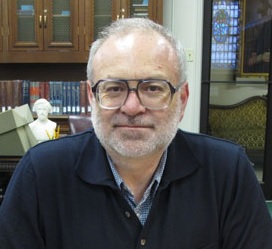By Derham Groves, Ph.D., University of Melbourne, Australia
What do The Beatles and Robert Browning have in common? Read Dr. Derham Groves’s post below to find out.
Dr. Groves is a faculty member of Architecture, Building and Planning in the Melbourne School of Design at the University of Melbourne, Australia. He was a visiting scholar at the Armstrong Browning Library from December 2014 through January 2015. You can read about Dr. Groves’s experience researching at the Armstrong Browning Library here. You can also read about an Armstrong Browning Library-related project he assigned students in his 2015 Popular Architecture and Design course here.
*****
In semester two 2018, each of the 200-plus Master of Architecture students doing my Popular Architecture and Design course at the University of Melbourne (Australia) were each asked to whittle the head of a ‘pop culture icon’—i.e. an actor, an architect, an artist, a fictional character, a politician, a TV personality, a writer, etc. who I discussed or at least mentioned during my lectures—from a block of wood using only a pocket knife.

Whittled Heads on Display in Architecture Library, University of Melbourne. Students in Dr. Groves Popular Architecture and Design class at the University of Melbourne whittled heads of pop culture figures as a class assignment.
Being a former Armstrong Browning Library visiting scholar, Robert Browning, Elizabeth Barrett Browning and Dr. A.J. Armstrong were on my list of pop culture icons. However, I ended up with no heads of Elizabeth or Dr. Armstrong and two of Robert. Oh well, two heads are better than one! I thought the friends of the Armstrong Browning Library might like to see them (along with a sampling of others).
None of the students had ever tried whittling before. (It’s more of an American pastime than an Australian one.) So I was pleasantly surprised by how good many of the heads were. But all of them—the good, the bad and the ugly—are currently on display in the Architecture Library at the University of Melbourne. What inspired this exercise—one of five the Popular Architecture and Design students completed this semester—was the cover of The Beatles’ 1967 LP Sgt. Pepper’s Lonely Hearts Club Band, designed by Peter Blake (b. 1932) and Jan Haworth (b. 1942).

